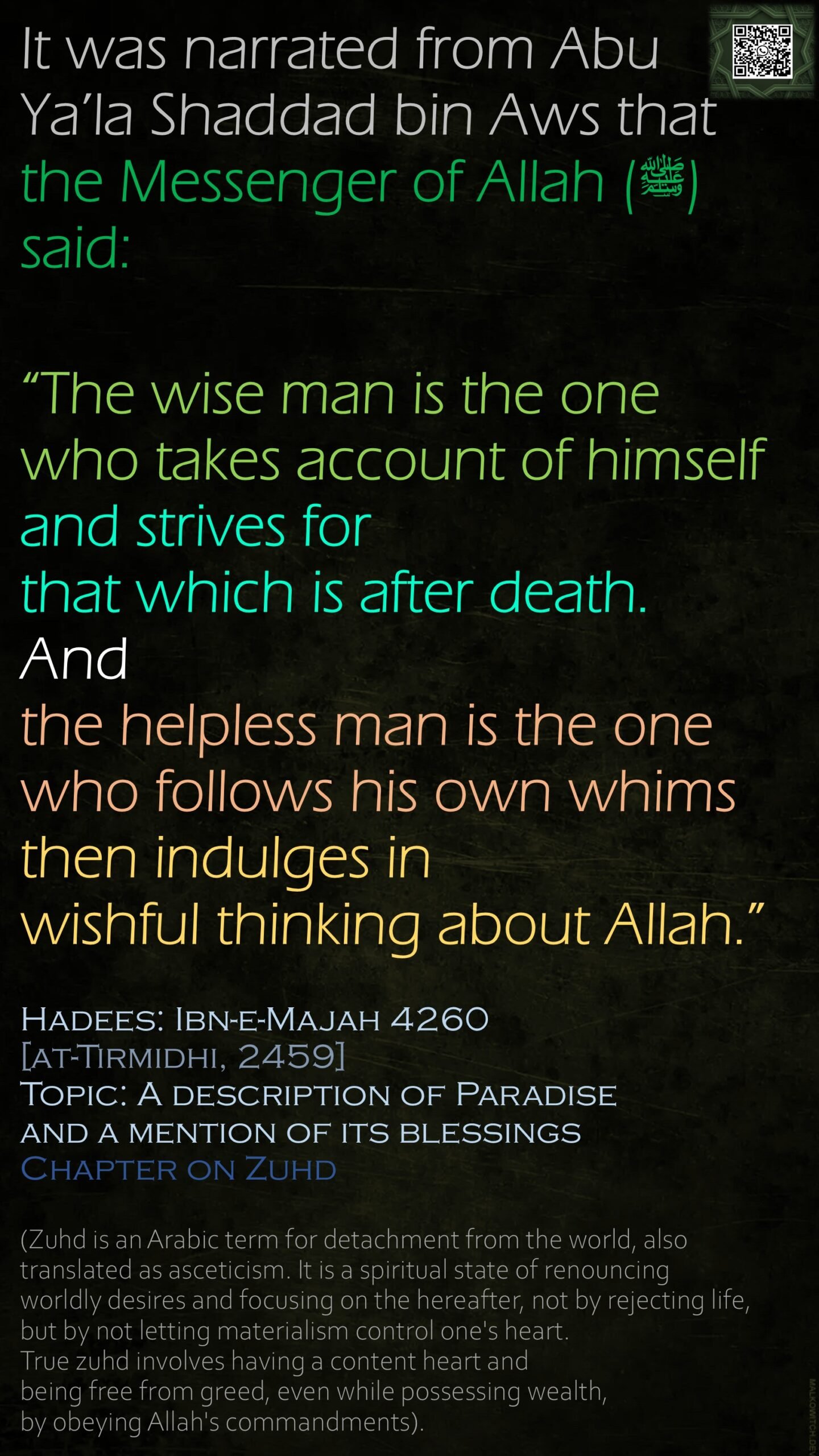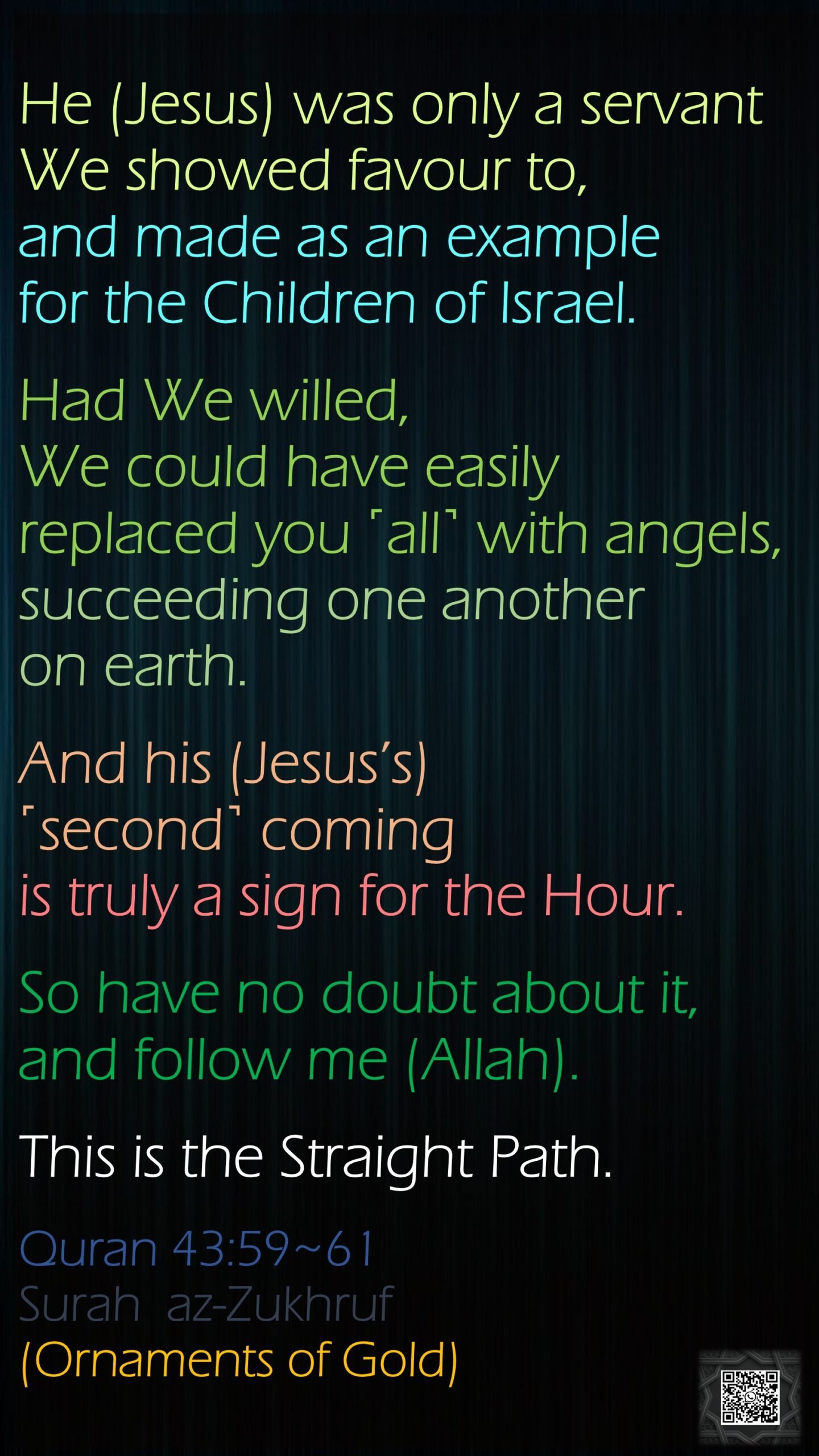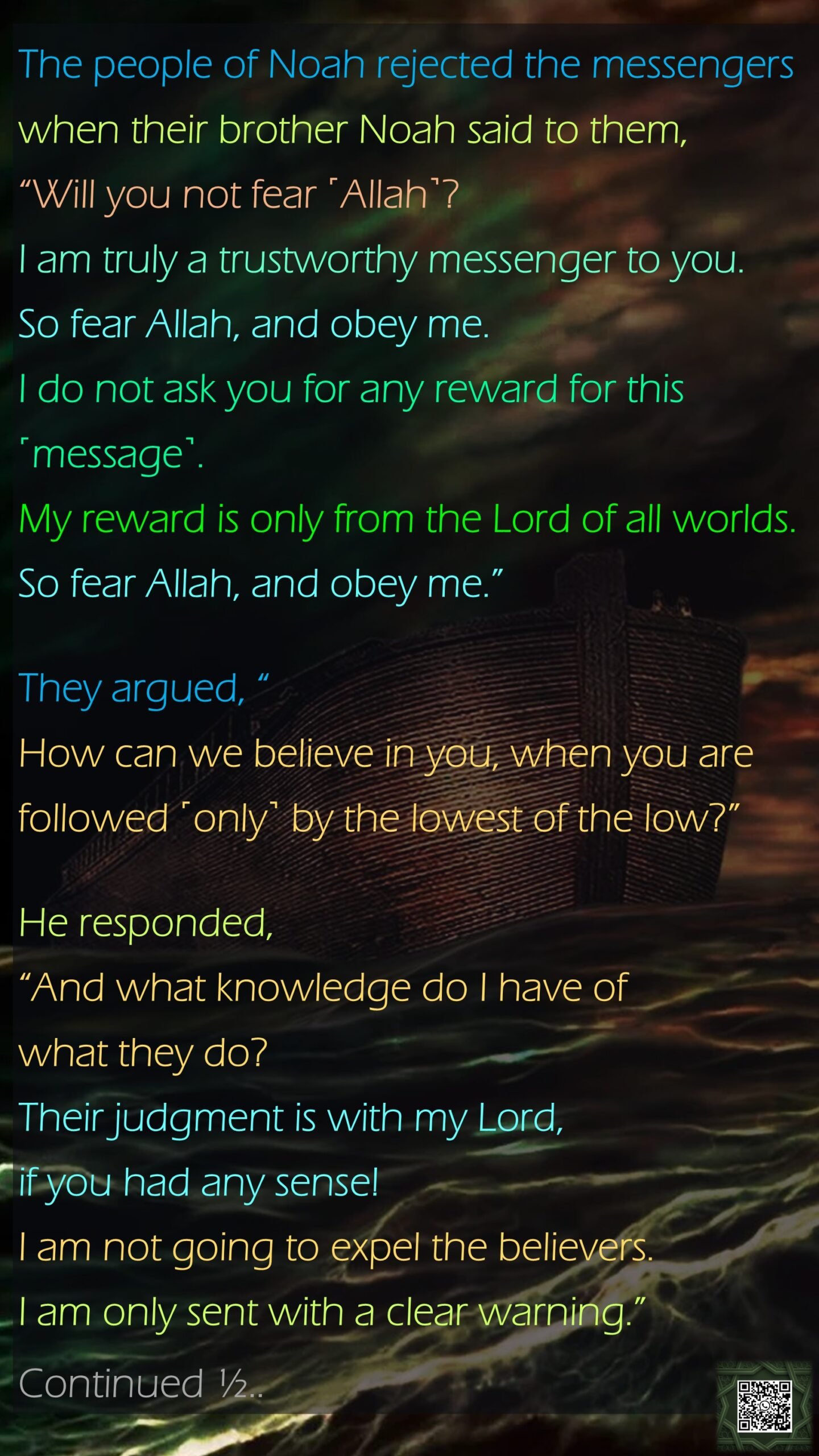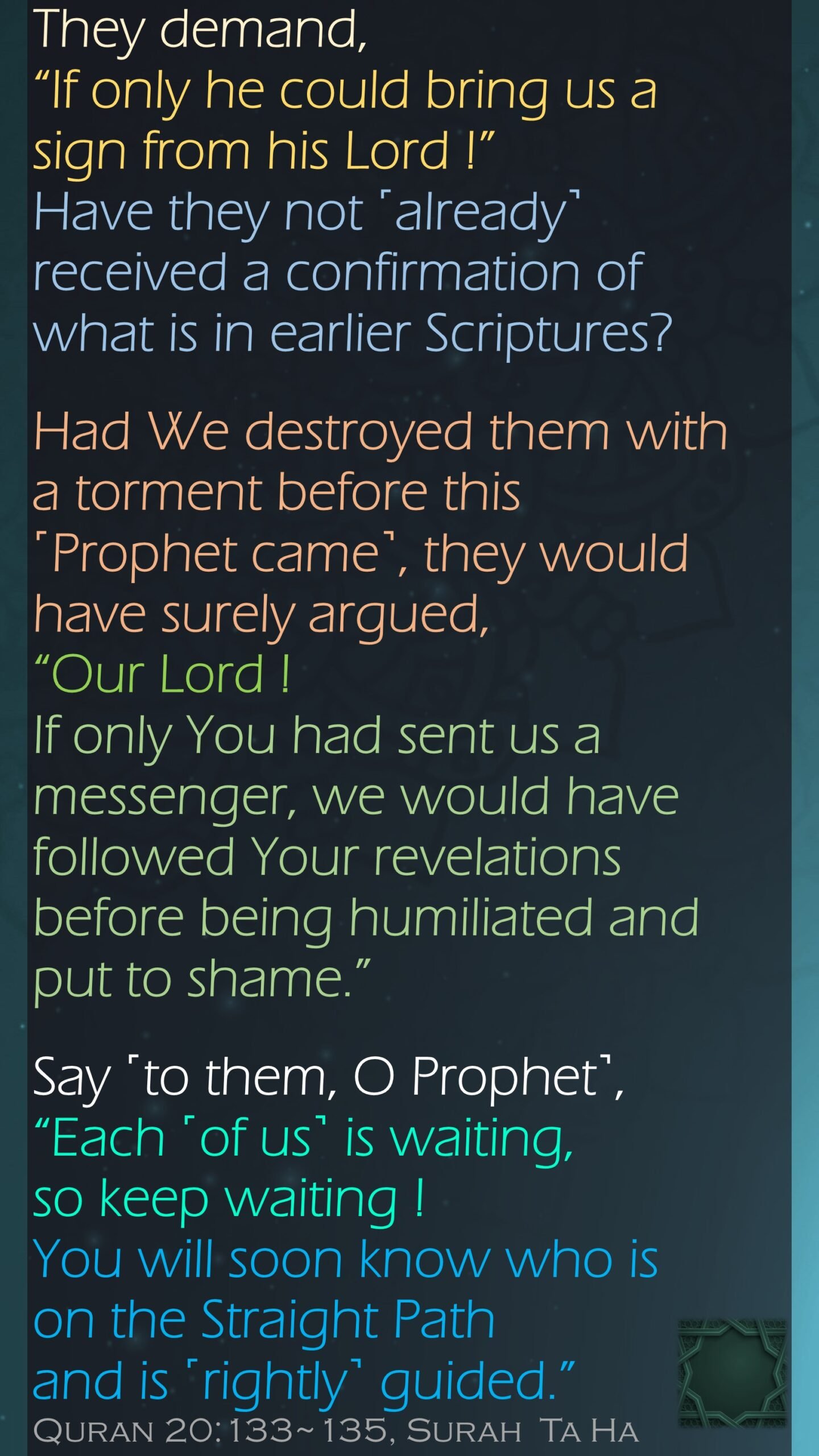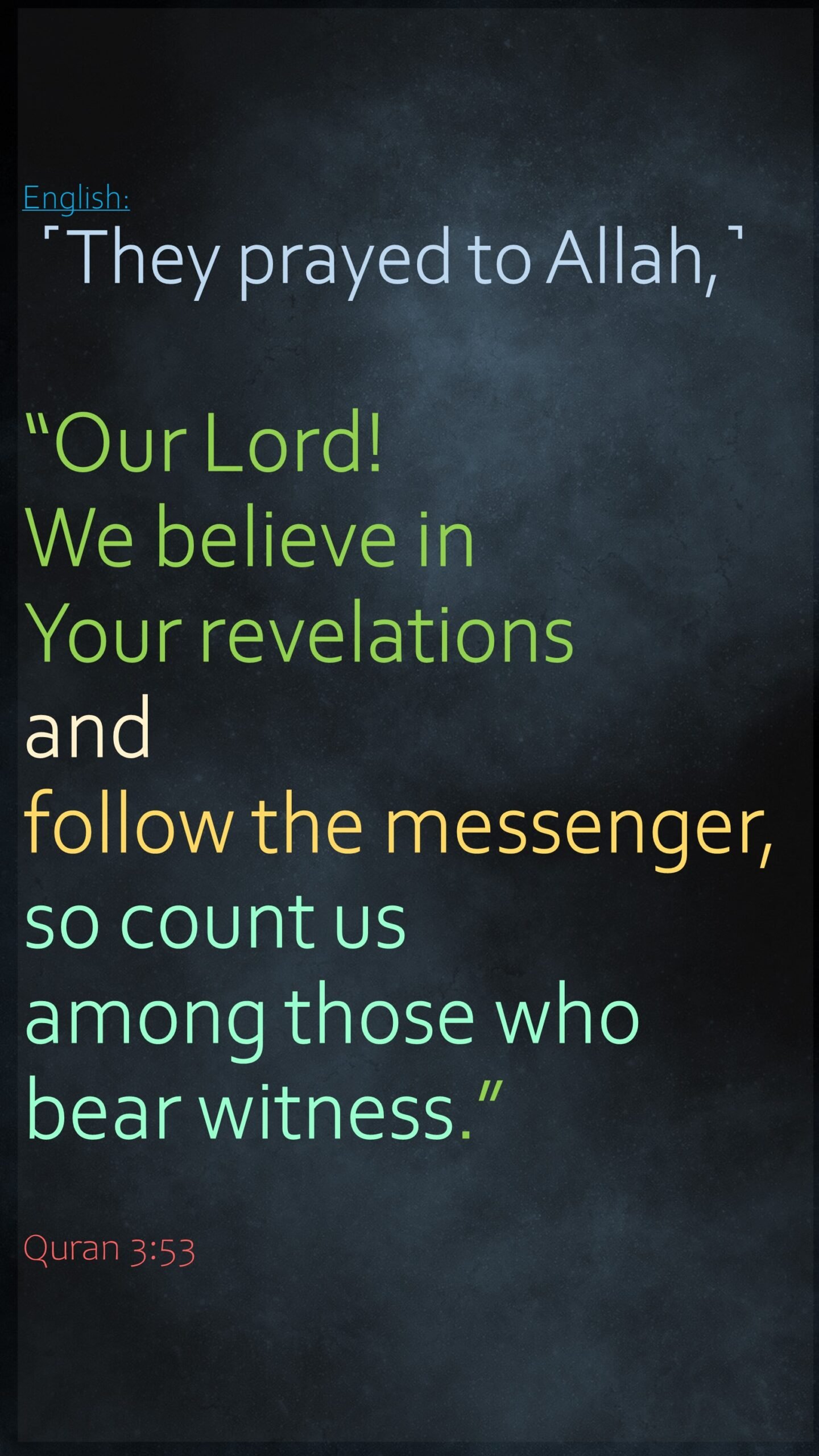Skip to Content
Tag Archives: follow
- Home -
- Posts tagged "follow"
29
Nov, 2025
Hadees, Islam
2459, 4260, accountable, Allah, better, Blssing, Death, dezth, follow, Ibn-e-Majah, ignorant, inspirations, islam, islamic, Life, man, Muhammad, pleasures, remember, strive, take account, thinking, tirmidhi, Tirmizi, wise, wishful, Zuhd
27
Oct, 2025
Islam, Quran
060, 061, actual, Allah, angel, ayat, belief, christian, daily, example, follow, gold, hour, inspirations, Isa, islam, islamic, Israel, Jesus, man, Muhammad, ornaments, path, quran, replace, resurrection, servant, straight, Surah, zukhruf
29
Sep, 2025
Islam, Quran
[Abraham (Ibrahim), 019, 058, Abraham, Allah, Ark, ayat, consequence, daily, Enoch (Idrees)], face, fell down, follow, generation, inspirations, Isaac (Ishaaq), islam, islamic, ismael, Israel, Jacob (Yaaqub), Jesus (Isa), John (Yahya), Mary (Maryam), Maryam, Moses (Musa), Muhammad, Noah, prostrate, prostration, prostration verse, quran, recite, revelations, rightly guided, Sajda, Sajda-e-Tilawat, Surah, weep, Zachariah (Zakariya)
1
Jun, 2025
Islam, Quran
026, 105 to 121, Allah, argue, Ark, ash Shuara, ayat, believer, boat, clear, daily, Death, decisive, drown, expel, fear Allah, fearmobey messenger, follow, fully loaded Ark, inspirations, islam, islamic, judge, judgement, Lord of the Worlds, low, lowest, messenger, Muhammad, Noah, Nuh, quran, reject, rewardd, save, sense, ship, stoned, Surah, the Poets, warning
27
May, 2025
Islam, Quran
002, 170, 171, Al-Baqarah, Allah, ayat, cries, daily, disbelieve, distract, follow, forefathers, guidance, guide, inspirations, islam, islamic, Muhammad, practice, quran, reveal, shepherd, Surah, understand, warning
20
Jan, 2025
Hadees, Islam
3604, 3604C, advice, Allah, command, daily, follow, gratitude, guard, increase, inspirations, islam, islamic, memorize, Muhammad, prophetic, remember, rememberance, revere, supplication, tirmidhi, Tirmizi
26
Dec, 2024
Islam, Quran
Allah, argue, ayat, daily, destroy, follow, guidance, inspirations, islam, islamic, Muhammad, path, Prophet, quran, right, Sign, Surah, torment, wait
18
Nov, 2024
Islam, Quran
004, 125, Abraham, Allah, An-Nisa, ayat, close, daily, do good, follow, friend, fully, good doers, Ibraim, inspirations, islam, islamic, Khalil Allah, Muhammad, quran, submit, Surah, upright, way, women
12
Dec, 2023
Islam, Quran
033, 2, 3, affairs, al-Ahzab, All-Aware, Allah, ayat, daily, follow, inspirations, islam, islamic, Muhammad, quran, reveal, sufficient, Surah, trust, Trustee
26
Mar, 2023
Islam, Quran
Allah, ayat, believe, believer, chapter 3, count, daily, duas, follow, inspirations, islam, islamic, messenger, Muhammad, PBUH, pray, quran, Rabbana, revelations, SAWW, Surah, Verse 53

